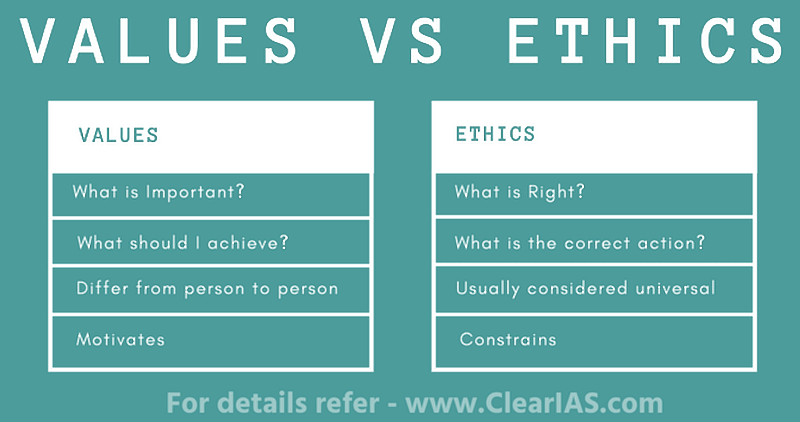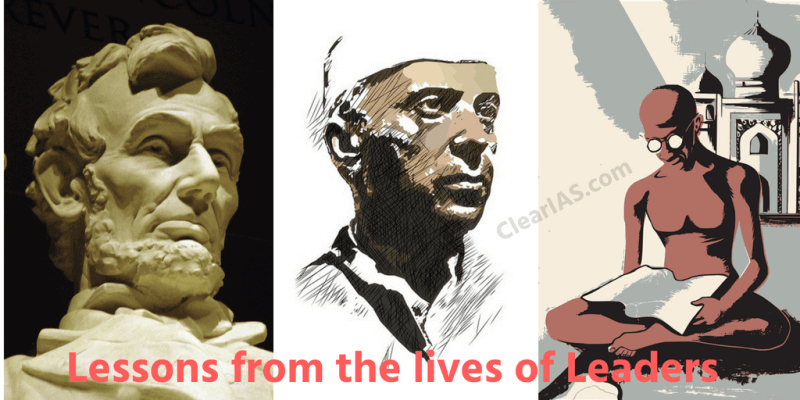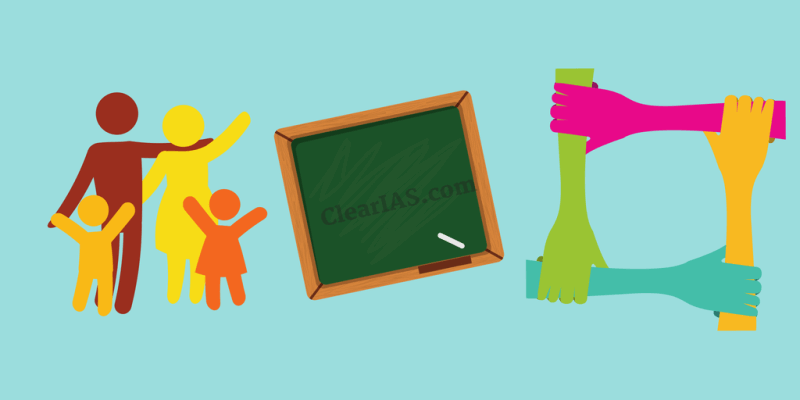
Values can be defined as those things that are valued by someone.
In other words, values are what is considered ‘important‘ by an individual or an organization. Examples include courage, honesty, freedom, innovation etc.
Value = Degree of Importance of Something
Value denotes the degree of importance of something (or even an action).
Human Values help in determining what actions are best to take.
Human Values are ‘beliefs’ about ‘what is important’
Values are the beliefs of an individual or a social group about what is held important. That motivates people to act one way or another. “Equal rights for all”, “Merit above all else”, “Dignity of labour” etc are representatives of values.
Values have a major influence on a person’s behaviour and attitude.
Values (What is Important?) vs Ethics (What is Right?)

Values determine what is important.
Ethics determine what is right.
Values are ideals of someone (or a group) about what is good or bad (or desirable or undesirable).
Ethics is all about reasoning how to do the right action. (Don’t miss our article on the dimensions of ethics)
Values motivate, while morals and ethics constrain.
The conflict between Values and Ethics
Generally, people are predisposed to adopt the values that they are raised with. People also tend to believe that those values are “right” because they are the values of their particular culture.
For example, if making money is a value cherished by a society (most societies cherish that value!), and if the society is not that bothered about how that money is made, that can lead to unethical practices.
Ethical decision-making often involves weighing values against each other and choosing which values to elevate.
A conflict between Values: Value ‘A’ vs Value ‘B’
Conflicts can also result when people have different values, leading to a clash of preferences and priorities.
Can you think of an example?
What if a person values honesty as his core ideal, while the other person values efficiency as the priority? Is there a chance of conflict?
Human Values vary among Individuals and Cultures, and Time
Just like morals, values also vary among individuals and across cultures and time.
For example, for some people, their nation’s flag may represent a sacred value. But for others, the flag may just be a piece of cloth.
Types of Human Values
We know that honesty, goodness, humility etc are values. They form a group of values called Moral Values.
There are other types of values as well – like Intelligence, Beauty, Power etc. Let’s look at the type of human values.
1. Moral Values
- Moral values are concerned with the principles of right and wrong.
- They serve as the backbone of societal norms and ethics, guiding individuals in making decisions that are not just beneficial to themselves but also considerate of others.
- Honesty, integrity, kindness, and empathy fall under this category.
- Moral values are rated highest among all natural values.
- These values encourage us to act ethically and responsibly, fostering trust and cooperation within communities.
2. Social Values
- Social values emphasize the importance of relationships and social harmony.
- They include respect, tolerance, and compassion towards others.
- These values underpin the importance of community and collective well-being over individual success.
- In a world marked by diversity, social values help bridge differences, promoting peace and mutual understanding among people of various backgrounds.
3. Cultural Values
- Cultural values are shaped by the traditions, customs, and history of a community.
- They reflect the identity and heritage of a society, including its language, art, and rituals.
- Values such as respect for elders, the significance of family, and the celebration of festivals are examples.
- Cultural values are crucial for preserving a community’s uniqueness and fostering a sense of belonging among its members.
4. Spiritual Values
- Spiritual values explore the meaning and purpose of life beyond the material world.
- They involve values like faith, inner peace, and enlightenment.
- These values encourage individuals to connect with their inner selves and the universe, seeking harmony and understanding beyond physical existence.
- Spiritual values can lead to personal growth and fulfilment, often promoting compassion and empathy towards others.
5. Personal Values
- Personal values are individual beliefs that dictate how we conduct our lives.
- They include ambition, courage, independence, and curiosity.
- These values are subjective and vary greatly among individuals, shaping personal goals, preferences, and behaviours.
- Personal values are essential for self-identity and autonomy, encouraging us to pursue our passions and live authentically.
6. Professional Values
- Professional values guide behaviour in the workplace and contribute to career success.
- They include dedication, responsibility, innovation, and teamwork.
- These values are crucial for creating a productive and positive work environment, fostering professional growth, and achieving organizational goals.
Personal Values vs Social Values
Personal Values – Important for Individual well-being. Examples of personal values – are self-respect, a comfortable life, freedom etc.
Social Values – Important for other people’s well-being. Examples of social values – equality, social justice, national security, world peace etc.
Note: A coordinated and balanced pursuit of both self-serving and other serving values will lead to a positive and fulfilling life.
Lessons from the lives and teachings of great leaders, reformers and administrators

We are fortunate to have many great leaders, reformers, and administrators who cherished noble values and ethics. They not only lived an ethical life but also taught many human values.
Let’s have a quick look at the lessons from the lives of eminent persons. We shall deal with each of them in detail in the next posts.
- Mahatma Gandhi: What he valued – Simplicity, Minimalism, Satyagraha, Sarvodaya, Secularism, Ahimsa, Non-Violence, Truth, Forgiveness, Self-Sufficiency, Dignity of labour etc.
- Jawaharlal Nehru: What he valued – democracy, institution building, consensus building, socialism, secularism, self-determination, internationalism etc.
- Nelson Mandela: What he valued – service, dignity, self-belief, equality of the human race, freedom, fairness, justice, etc.
- Abraham Lincoln: What he valued – humanism, equality of the human race, integrity, idealism, honesty, freedom etc.
- Martin Luther King Jr: What he valued – self-belief, equality of the human race etc.
- Raja Rammohan Roy: What he valued – social equality, equality of the human race, women empowerment, scientific thinking etc.
- Swami Vivekananda: What he valued – self-belief, equality of the human race, patriotism, compassion etc.
- B R Ambedkar: What he valued – self-belief, equality of the human race, radical thinking, compassion etc.
- Mother Teresa – What she valued – compassion, altruism, helpfulness, kindness, cleanliness, determination.
- Verghese Kurien – What he valued – self-belief, cooperative societies, entrepreneurship, innovation, farmer welfare etc.
- M.S. Swaminathan – What he valued – sustainable development, green revolution, poverty alleviation, farmer welfare etc.
- Sam Pitroda – What he valued – self-belief, dreaming big, entrepreneurship, policy-making, innovation etc.
- E. Sreedharan: What he valued – punctuality, self-belief, integrity, high-quality standards etc.
Examples of Human Values from the lives and teachings of great leaders, reformers and administrators
Throughout history, great leaders, reformers, and administrators have not only embodied human values but also imparted timeless lessons through their lives and teachings.
1. Mahatma Gandhi: The Epitome of Non-violence and Integrity
Mahatma Gandhi’s life is a testament to the power of non-violence and the pursuit of truth.
His principle of ‘Ahimsa’ (non-violence) was not just a strategy for political struggle but a universal value for human conduct.
Gandhi’s commitment to living a life of simplicity and integrity underscores the importance of personal values in the quest for social and political change.
His famous adage, “Be the change you wish to see in the world,” urges us to embody the values we advocate for, emphasizing that true change begins with oneself.
2. Nelson Mandela: Resilience and the Spirit of Forgiveness
Nelson Mandela’s remarkable journey from a 27-year-long imprisonment to becoming the President of South Africa and a Nobel Peace Prize laureate exemplifies resilience and the spirit of forgiveness.
Mandela showed the world that holding onto bitterness and resentment holds us back, while forgiveness, even towards one’s oppressors, can liberate a nation.
His leadership teaches us the value of reconciliation over vengeance, highlighting the strength required to forgive and the profound impact it can have on healing divided societies.
3. Mother Teresa: Compassion in Action
Mother Teresa’s life was a living embodiment of compassion and selfless service.
She dedicated her life to helping the poorest of the poor, seeing the face of God in everyone she served.
Her work with the sick, the dying, and the destitute in the slums of Kolkata (Calcutta) was driven by profound love and empathy.
Mother Teresa believed that small acts of love and kindness could create ripples of change, teaching us that compassion is not merely feeling but action.
4. Martin Luther King Jr.: The Dream of Equality and Justice
Dr. Martin Luther King Jr., a pivotal figure in the American civil rights movement, championed equality, justice, and the dignity of all human beings.
His eloquent speeches and non-violent protests against racial discrimination and segregation marked significant milestones in the fight for civil rights in the United States.
King’s vision of a society where people are judged by the content of their character rather than the color of their skin remains a powerful call for fairness and unity in diversity.
5. Abraham Lincoln: Leadership and the Pursuit of Freedom
As the 16th President of the United States, Abraham Lincoln led his country through its Civil War—its bloodiest war and its greatest moral, constitutional, and political crisis.
In doing so, he preserved the Union, abolished slavery, strengthened the federal government, and modernized the U.S. economy.
Lincoln’s leadership during one of the most tumultuous periods in American history exemplifies the values of resilience, justice, and commitment to the principles of democracy and freedom.
6. Malala Yousafzai: The Courage to Advocate for Education
Malala Yousafzai, a Pakistani activist for female education and the youngest Nobel Prize laureate embodies courage and the relentless pursuit of education for all.
Surviving an assassination attempt by the Taliban, Malala didn’t let fear deter her advocacy.
Her steadfast commitment to education rights, especially for girls in regions where access to education is restricted, underscores the power of voice and courage against oppression.
Malala’s story teaches us the value of resilience and the right to education.
7. Rosa Parks: The Strength of Quiet Determination
Rosa Parks is known for her pivotal role in the Montgomery Bus Boycott, which became a landmark event in the civil rights movement.
By refusing to give up her seat to a white passenger on a segregated bus, Parks demonstrated the strength of quiet determination and peaceful protest.
Her actions showed that standing up for one’s rights and dignity often requires courage in the face of injustice and that individual acts of defiance can spark significant social change.
8. Confucius: The Importance of Ethics and Moral Rectitude
The teachings of Confucius, a Chinese philosopher and educator, have profoundly influenced East Asian thought and life.
Confucius espoused values such as respect for elders, filial piety, benevolence, and the importance of ethics and moral rectitude in personal and public life.
His concept of ‘Ren’ (仁), often translated as humaneness or benevolence, promotes the idea that being virtuous is essential to a harmonious society.
Confucius’ emphasis on moral education and the cultivation of character continues to resonate today.
9. Albert Einstein: Curiosity and the Pursuit of Knowledge
Albert Einstein, one of the most celebrated physicists in history, exemplified the values of curiosity and the relentless pursuit of knowledge.
Einstein’s contributions to science, including the theory of relativity, have not only advanced our understanding of the universe but also highlighted the importance of questioning and exploring the mysteries of the world.
His life reminds us that intellectual curiosity and the pursuit of understanding are fundamental to human progress.
Role of Family, Society and Educational institutions in inculcating Values

Now, we are living in an age where people don’t have the right values or ethics. Family, society, and educational institutions can play a great role in inculcating values to the new generation.
Role of Family in inculcating values
The family is the earliest and without question the most influential agent of socialization. Socialization via the family goes from cradle to grave. The father, mother, siblings, and grandparents become the immediate agents of socialization.
Children pick up behavioural traits from all those who are in his/her immediate environment. Values are imbibed by children by observing what parents do (and not just what parents say).
The power of the family is strongest during infancy and toddler years. During the teenage, the influence of peer groups and media usually overshadows the power of the family. However, the family returns as a predominant agent of socialization during the adult years with the roles of marital partner and parents becoming prominent.
There can be differences in values between family to family based on their socio-economic statuses.
Role of Educational Institutions in inculcating values
Schools and Colleges are important agencies in the process of socialization and thus can help a lot in inculcating values.
- School is the first place where individual values get compared with the larger value system of society.
- The curriculum imparts the values of accepted behaviour.
- A school student learns not only from the official curriculum but also from the social curriculum of peer groups. Values are also imbibed from the hidden curriculum (Eg: don’t talk while a teacher is taking the class).
- This is the place where one learns the values of punctuality and discipline.
- Values education is an explicit attempt to teach about values. There are five basic approaches to values education: inculcation, moral development, analysis, action learning, and values clarification.
Role of Society in inculcating values
Society can also inculcate a lot of values in people. The elements of society that have a great influence on people include:
- Friends
- Neighbours
- Media
- Films
- Religion
- Leaders
- Government
Human Values: Conclusion
Human values are integral to the fabric of society, guiding individuals in their daily lives and interactions with others.
Values form the foundation of our decisions, actions, and beliefs, influencing everything from personal development to global relations.
The lives and teachings of these great figures offer profound lessons on the importance of embodying human values.
They remind us that integrity, compassion, resilience, forgiveness, and commitment to justice are not just ideals but actionable principles that can guide our actions and influence the world around us.
By reflecting on these lessons and striving to live by these values, we can aspire to lead lives that not only enrich ourselves but also contribute to the betterment of society.





Wow! Such concise and sweet explanation!!
yes..really simple and great explanation values( important ) vs ethics ( right ).
Great notes. Sir, please provide Most Probable MCQs compilation. It would be much helpful. Thank you .
thanks!!!!!
thanks!!!!! A TON.
Values are in domain of importance.. while ethics is in domain of what is wrong and what is right…
Ex. For me veg. Is value. Then I should eat veg. ( Because veg. Is value for me..) it does not mean non veg is bad and veg is good…but I give importance to veg. ( It is clear that values are not good or bad, right or wrong.. but value is just importance)
Ethics .. is in domain of what is right and what is wrong…
Waoo such a wonderful explanation .this is vry important topic for every competitative exam . Thnk u so much for this wonderful topics 🙏🙏🙏🙏🙏🙏